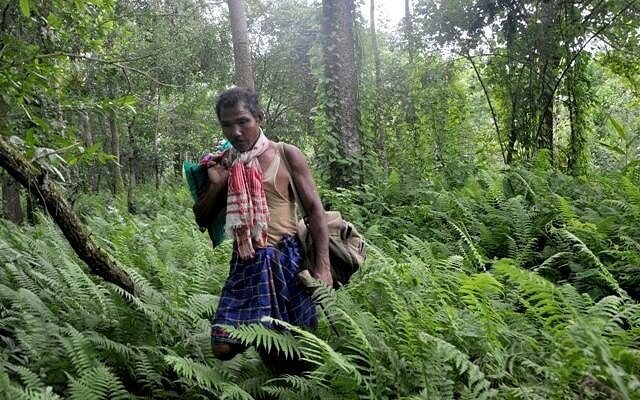Jadav “Molai” Payeng: Forest Man of India

Image Source: The Alternative
“A journey of a thousand miles begins with a single step,” Chinese philosopher Lao Tzu had famously said.
Jadav “Molai” Payeng’s Childhood
When 16 year old Jadav “Molai” Payeng planted the first sapling almost three decades ago, did he know that one day it would become a 1,360 acre jungle named after him? Probably not. But he had taken the first step.
Payeng, who belongs to the Mising tribe of Jorhat district in Assam had been an animal lover since childhood and was perplexed when he saw a large number of snakes die after the flood water washed them on to a barren sandbar. It pained him to see the animals die in the heat, without any forest cover, but he could not do anything about it. He then alerted the forest department and told them that there was a need to grow more trees there. They told him that nothing would grow there but he could try growing bamboo. He did just that. There was nobody to help him. Nobody was interested in his efforts either.
Jadav “Molai” Payeng – The Animal Lover
But Payeng was a man on a mission. He knew that without trees all of us will someday meet with the same plight as the snakes. He knew that he had to make the planet greener. That is when he planted around 20 bamboo sapling on the sandbar, which was actually a barren island in the river Bramhaputra. In 1979, he started working on tree plantation scheme with the forest department. Payeng decided to work even after the others had left. He planted more trees and took care of them. For about three half and a half decades since then he has continued doing the same thing. Plant more trees.
His efforts started getting known by the authorities in 2008, when forest department officials went there in search of a herd of about 100 elephants which had retreated in the forest after damaging a nearby village. Their surprise knew no bounds when they saw such a large and dense forest. Since then they have visited the site on a regular basis.
Jadav “Molai” Payeng’s Success Stories
The forest now has several hundred trees with bamboo trees covering 300 hectares. It houses Bengal tigers, Indian rhinoceros, deer, rabbits, monkeys and many varieties of birds. What’s more, about 100 elephants visit the forest for a few months every year and they have given birth of 10 calves in the last few years.
Payeng’s efforts have got recognized in the recent years. JNU vice-chancellor Sudhir Kumar Sopory gave him the name of “Forest Man of India”. In October 2013, Payeng was honoured at the Indian Institute of Forest Management during their annual event. His story has also been covered by documentary filmmakers.
Payeng has a wife and three children and earns his living my selling milk from the cows and buffalos he has on his farm. He has lost many of his animals to tigers in the forest, but he knows that it is us human beings who are responsible for the plight of the wild animals who have nowhere to go after their natural habitat is destroyed. Thanks to Payeng, many of them have found a place they can call home.
[supsystic-social-sharing id="1"]

Thanks for the article…